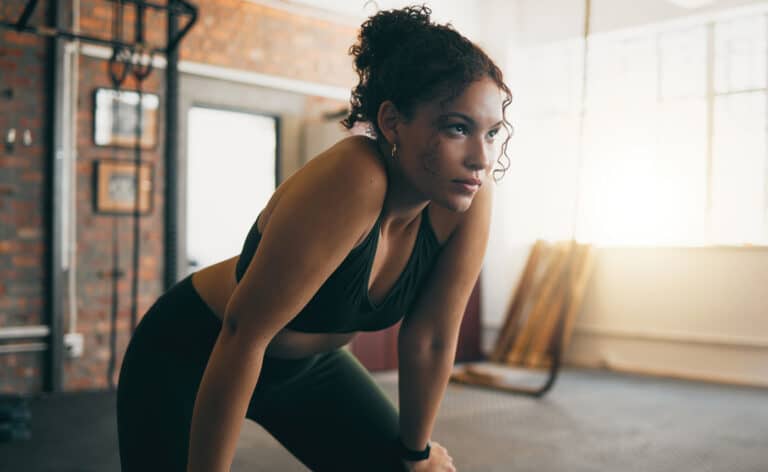As the Covid-19 pandemic continues to affect the Chicago area, our winter weariness is gradually lifting, but the stress and loneliness continue to mount.
Stay-at-home orders, quarantining, and other public health measures have forced people indoors, leading to increases in loneliness and mental health issues. In a study of 18- to 35-year-olds in April and May 2020, 80% of respondents reported symptoms of depression, 61% had moderate to severe anxiety, and 49% reported loneliness.
While the stress persists, it is important for people to maintain both their physical health and their mental health, says Jocelyn McDonnell, a therapist at the Family Institute at Northwestern University.
While social isolation and loneliness often go hand-in-hand, they are two different issues, McDonnell notes.
“Not everyone who is physically isolated feels lonely, and, similarly, not everyone who is lonely is necessarily isolated,” she says.
Loneliness has many potential health consequences, McDonnell says. People experiencing chronic loneliness are at a higher risk for both mental and physical issues, according to the Centers for Disease Control and Prevention. Loneliness is also associated with a higher risk of anxiety, depression, and suicide.
“If an individual has a history of social anxiety and depression pre-pandemic, inclement weather and Covid restrictions are likely going to make it more difficult to increase their social ties,” McDonnell says.
Importance of exercise
Even though it can be hard to work up the motivation, exercising and maintaining physical health can relieve anxiety.
“With the uptick of anxiety and depression due to isolation, exercise is a proven way of decreasing both of these diseases,” says Kristen Neisler, clinical assistant faculty in exercise science at DePaul University.
Exercise increases blood and oxygen flow to muscles and the brain, which helps to decrease anxiety and depression.
Even if people are uncomfortable going to a fitness facility because of the threat of Covid-19, there are still many ways they can stay active, Neisler says.
“You do not need to go into a gym,” she says. “There are plenty of workouts that can be done at home, with body weight or with holding milk cartons filled with water.”
Lauren Carr, a recent graduate of Loyola University who lives in Rogers Park, says she avoids going to the gym and instead relies on other forms of exercise.
“I try to exercise at home in the form of yoga, walking around my neighborhood, or even playing a dancing game on Xbox Kinect,” she says.
Staying active allows your body to relax and destress, McDonnell says.
“Our nervous systems have been activated since March,” she says. “Our bodies are holding onto anxiety and stress. Our thoughts are racing. Intentional movement can help reduce stress.”
Yoga can help – start with basic poses like lying on the floor and putting your legs up against a wall. Going for a walk — even if only for 10 minutes — can be beneficial as well, regardless of the cold temperatures, McDonnell says.
“Our stress response does not really care about the temperature,” she says. “We are still holding stress in our bodies. Because we don’t have those opportunities to be outside as much as we used to [during winter], it is more important now than ever to try our best to go outside.”
Changing thoughts
Being constantly plugged into the news impacts mental health, too.
Our brains are not able to identify the difference between what we perceive as risk versus the actual risk, she says. The more we think about something, the risk can seem real, she says.
McDonnell says it is imperative for people to have a balance when following the news and pandemic developments in order to maintain their well-being and prevent extra anxiety and stress.
She recommends that people set timers and be intentional about how much news they consume, as well as how much time they spend on social media.
“Be mindful of the doom scrolling,” she says.
A break is also helpful, McDonnell says. While some of her patients have gone on vacation to a secluded area, others have taken a staycation. While it may not sound adventurous, people can do activities close to home that they wouldn’t do on a normal basis, she says.
It can also be good to seek some balance, rather than engage in fatalist black-and-white thinking. Dialectic thinking requires a person to realize that opposing thoughts and experiences can coexist, McDonnell says. For example, you can feel anger at seeing someone not wearing a mask juxtaposed with gratitude that there is a vaccine on the way.
Optimism can also help, McDonnell says. She asks patients to reflect on how much has happened since the start of the pandemic.
“You, your body, and your mind have endured this pandemic for the last [12] months,” she says. “There is so much to be proud of.”

Abbas is a freelance writer and podcaster based in Chicago. He has an interest in healthcare, sports, and radio.











